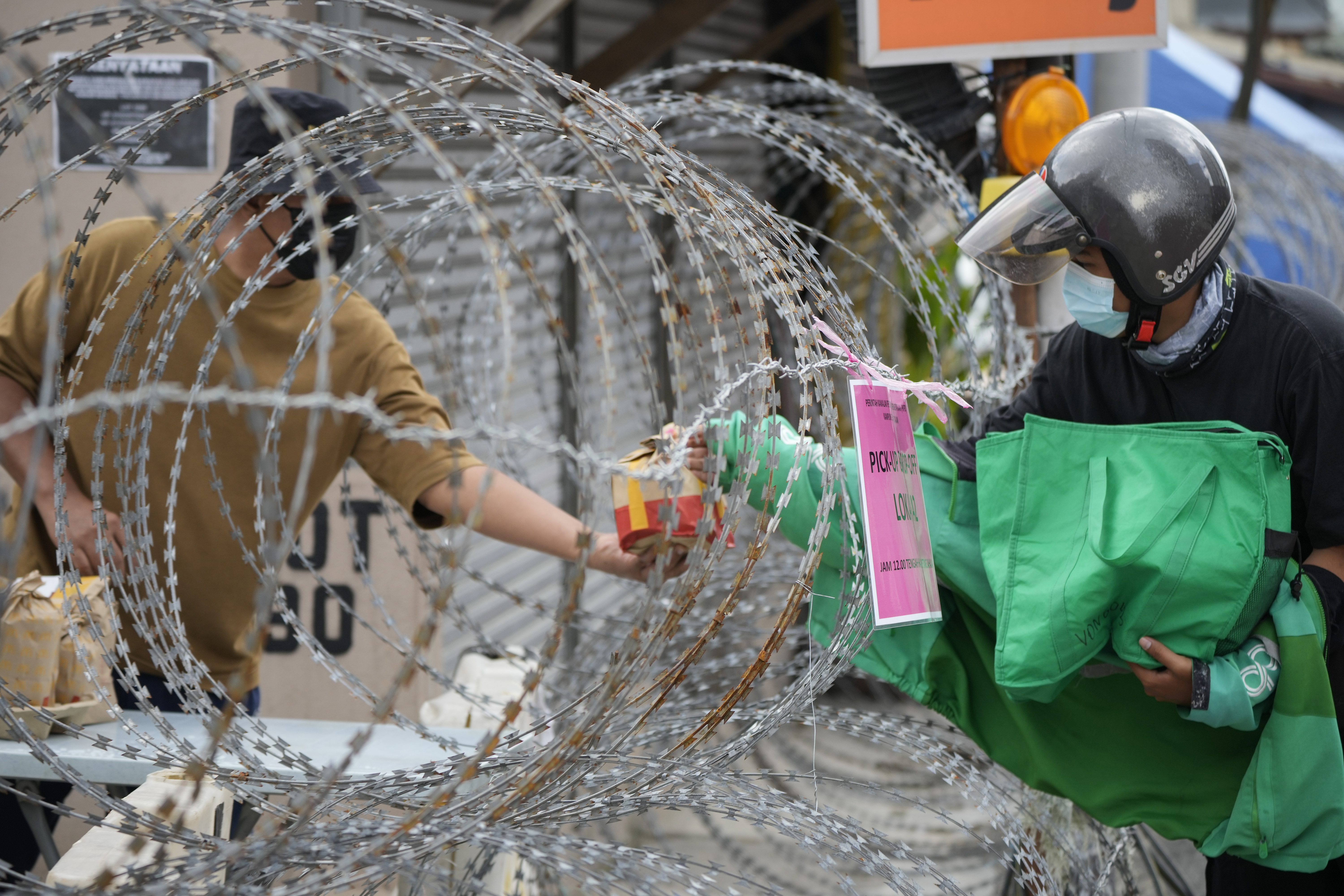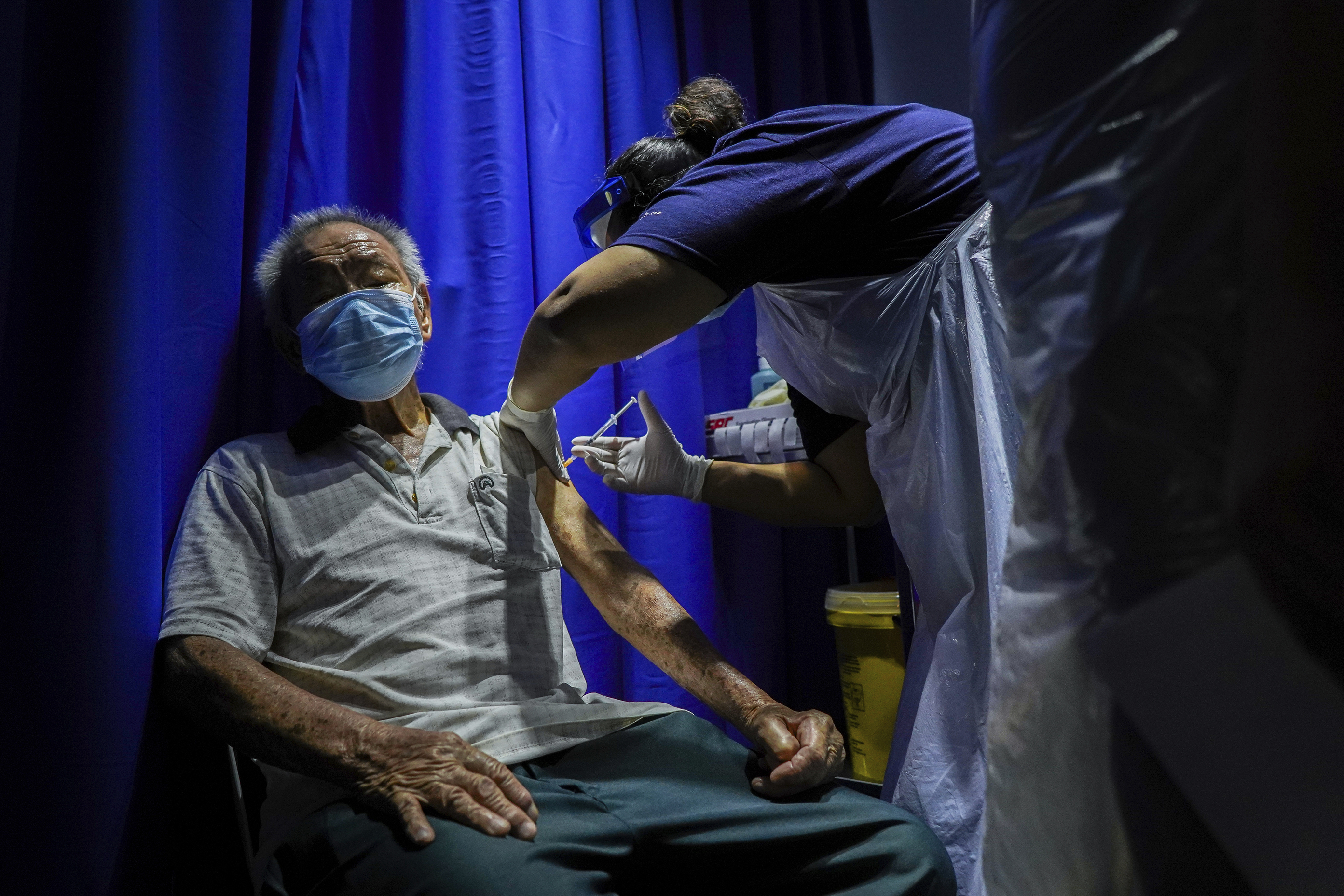Two Wars Are Raging in Malaysia. One Against COVID, the Other on Ivermectin.
August 12, 2021Nor Saloma was sick.
Sick of inaction from politicians who were “too busy fighting to stay in power” to pay attention to the needs of citizens; sick of the uncertainty brought about by the never-ending pandemic; and now sick with the highly contagious delta variant of the coronavirus.
Life has been “a living nightmare” for the 46-year-old Malaysian mother of four, who contracted COVID-19 in May. Her husband Yusuf Ahmed, 53, also tested positive. The couple struggled to get adequate care in the southern state of Johor, where the healthcare system is strained. “Hospitals are full, there are no beds. And it takes weeks to see a doctor because there are so many sick people,” Saloma told VICE World News.
Adding to her dilemma were her 15-year-old son and 9-year-old daughter, who both also fell sick from the disease. “The situation has spiralled beyond our control,” she said.
Saloma tried both modern and traditional medicines to treat her recurring fevers and respiratory pains. But one afternoon, she was forwarded a message on WhatsApp about a “COVID-19 miracle pill” called ivermectin. The message sent by a neighbour read: “There is now a COVID-19 medication called ivermectin, which has helped treat and cure millions of patients. It did not come from western countries. You can get it easier than a vaccine.”
Curious, Saloma clicked on the link and was directed to a YouTube video about the drug that is now being used in human trials for COVID-19 treatment. She watched the 25-minute clip and, for the first time in more than a year, she began to feel hopeful. “I couldn’t believe it,” she said. “There is finally a medicine to treat COVID-19 and I could afford it for my family.” She thanked her friend for sending the message and went in search of the pill online.
To her delight, she found it for sale on one of the biggest e-commerce platforms in Asia, Lazada. She bought five boxes.

She said taking the pills made her feel better. “Vaccines and other medications could take years to fine-tune and be approved for public use,” she said. “We’ve already suffered and lost so much in Malaysia. We don’t have time to wait around for a cure and if ivermectin works, that’s good enough for me.”
“You can get it easier than a vaccine.”
As in other parts of the world, ivermectin has been hailed as a miracle treatment for COVID-19 in many Asian countries like India, Indonesia, Thailand and the Philippines. It comes as the region faces its worst COVID-19 waves so far amid alarming record rises in infections and slow vaccination rates.
Interest in the drug, which has different versions approved for human and animal use, has now reached Malaysia. Calls for ivermectin to be approved for COVID-19 treatment come at a time when public trust in the government’s handling of the pandemic remains frail and shaky, and hospitals are overwhelmed.

Ivermectin is not approved for human use in Malaysia. A version in the U.S. is approved for humans to treat tropical diseases and lice, but not COVID-19. It also comes in different concentrations and sizes, including pill and powder form – raising concerns among medical experts over proper dosage. “Ivermectin products are routinely dispensed for monthly heartworm prevention in animal clinics, part of treatment protocol for heartworm infections,” said Singapore-based veterinary surgeon Travis Jayson.
“Because COVID-19 is looked at as being ‘parasitic’ and ivermectin is traditionally used in veterinary medicine to treat parasites, I suspect that the public assumes it would work the same for humans.”
The drug is being touted by some health influencers and was even the subject of recent heated debate in parliament that resulted in a shouting match between several politicians. “There are no side effects. This drug has been used before,” argued member of parliament Khalid Samad. “How long are you going to wait for? Are you just going to let patients die?”
The World Health Organization and the U.S. Food and Drug Administration have both advised against using ivermectin, saying that current evidence on its use to treat COVID-19 patients is inconclusive. Studies and medical journals that initially supported the drug as a coronavirus treatment have also been withdrawn over ethical concerns. One major study, led by a medical researcher named Ahmed Elgazzar from the Benha University in Egypt, was found to have “glaring discrepancies” in its data, the Guardian reported, and was said to contradict medical protocol. It was “one of the biggest ivermectin studies out there” and the data appeared to be “totally faked”, analyst Gideon Meyerowitz-Katz told the Guardian.
“Because COVID-19 is looked at as being ‘parasitic’ and ivermectin is traditionally used in veterinary medicine to treat parasites, I suspect that the public assumes it would work the same for humans.”
Other studies and clinical trials are underway. In the U.K., scientists at Oxford University are studying whether giving ivermectin to those suffering from COVID-19 symptoms prevents them from ending up in hospital.
Trials are also being conducted in Malaysia, with results expected as early as September. But it is clear that many are not waiting for definitive conclusions. VICE World News visited five pharmacies and clinics in the capital Kuala Lumpur and found boxes and strips of ivermectin pills being sold openly. Pharmacists also said they were seeing a surge in public inquiries about the drug, despite objections from doctors and health ministry officials. One veterinarian, who did not wish to be named because of the unclear regulations around the medication, said he had been selling ivermectin to clients by the strip – $14 for 18 pills – and has now run out of supply.
“I’m only left with injection vials,” he told VICE World News. “Those who come forward to buy ivermectin do so because they are unable and aren’t eligible to receive vaccines. A lot of them are also elderly.”
“Those who come forward to buy ivermectin do so because they are unable and aren’t eligible to receive vaccines. A lot of them are also elderly.”
But the easiest and possibly most accessible way of buying the drug was still online, where advocacy by religious conspiracists, as well as those on the dark web, have taken on new vigour. Saloma, like many Malaysians, turned to e-commerce platforms Shopee and Lazada. The popular sites sell everything and anything, from cookware to furniture, pet supplies, clothes, toiletries, toys and medicine. Listings by personal vendors selling the pills were going for as cheap as $10 for a strip, and $70 for a box.
Representatives from Shopee confirmed that all sales of ivermectin had been banned on its site, with vendors delisted and warned. “We have a strict zero-tolerance approach to the sale of prohibited items on our platform,” a spokesperson told VICE World News. “Any listings that are found to violate local regulations or [our] terms of use will be removed. We require our sellers to be compliant with both local regulations and our own stringent policies.” Lazada did not respond to requests for comment about ivermectin sales on its website and app.

Misinformation on chat apps and social media remains rampant. Forwarded WhatsApp chats and numerous Facebook posts seen by VICE World News, which drew hundreds of shares and comments, showed what was fuelling public buy-in of the drug: dated medical journals, false personal testimonials and doctored news reports.
“Ivermectin kills COVID-19 within 48 hours, university study finds,” read one post on Instagram. While these falsehoods have been clarified, debunked and removed by Facebook as well as fact-checking groups, pro-ivermectin messages still continue to circulate widely through social media channels and private chat groups.
On Facebook, politicians and influential Malaysian figures like tycoon Lee Kim Yew continue to tout ivermectin’s supposed benefits – calling for wider public acceptance. The founder and chairman of several real estate and hospitality companies, Lee’s public profile rose significantly during the height of Malaysia’s pandemic when he embarked on a series of high-profile health causes, organizing pro-ivermectin virtual conferences, and throwing his weight behind medical charities through generous donations and pledges of support to hospitals and NGOs.
Lee’s team did not immediately respond to email requests for comment from VICE World News, but he recently lent his signature to a forum letter published in a national newspaper by a de-facto medical coalition calling itself the Malaysia Alliance for Effective COVID-19 Control. “Lies about Ivermectin meant only for animals and that it causes severe side effects to humans must stop,” the group said.
“On the contrary it is one of the safest drugs ever produced.”
Malaysian doctors told VICE World News their concerns about the dangers behind such “unproven medical treatment” amid the COVID-19 misinformation war. Rafidah Abdullah, a physician, said ivermectin lies served to “hamper and undo” the hard work and efforts of health officials to combat infections through the use of proper and proven means like vaccinations and public safety protocols.
Another doctor, Helmy Haja Mydin, who heads respiratory medicine at the Pantai Hospital in Kuala Lumpur, warned against “snake oil salesmen” peddling “miracle medicine” that could almost be “too good to be true.”
“There is a rationale for an evidence-based approach to medicine, and it is primarily to not only ensure efficacious interventions but safe ones as well,” Helmy said. “As the saying goes, in God we trust; all others must bring data.”
Follow Heather Chen and Norman Goh on Twitter.
